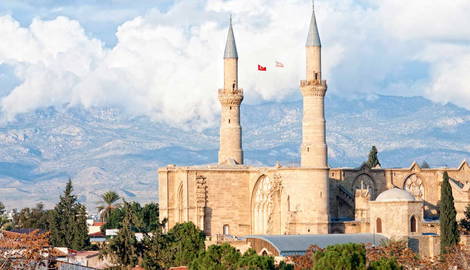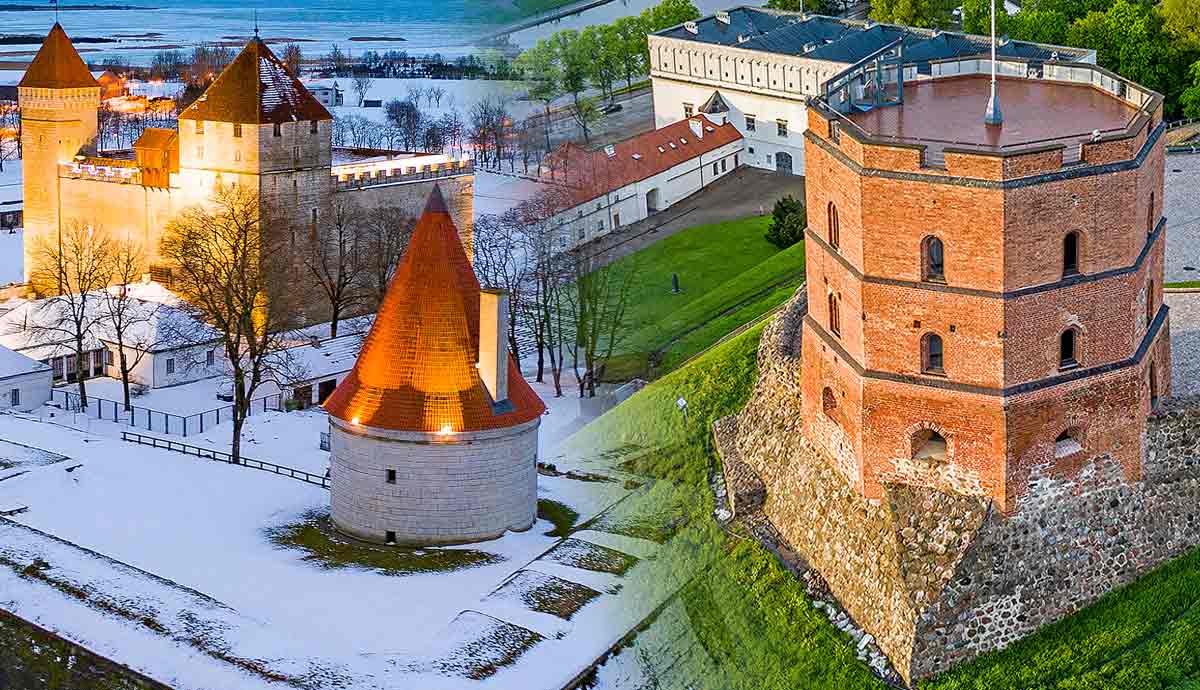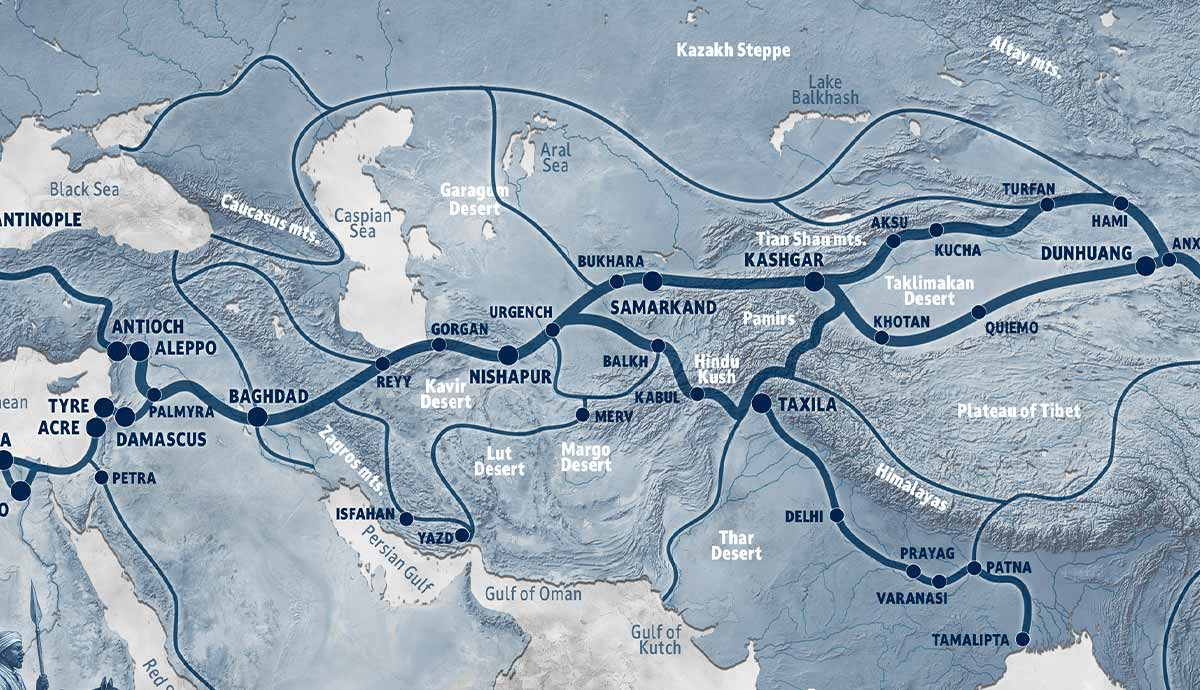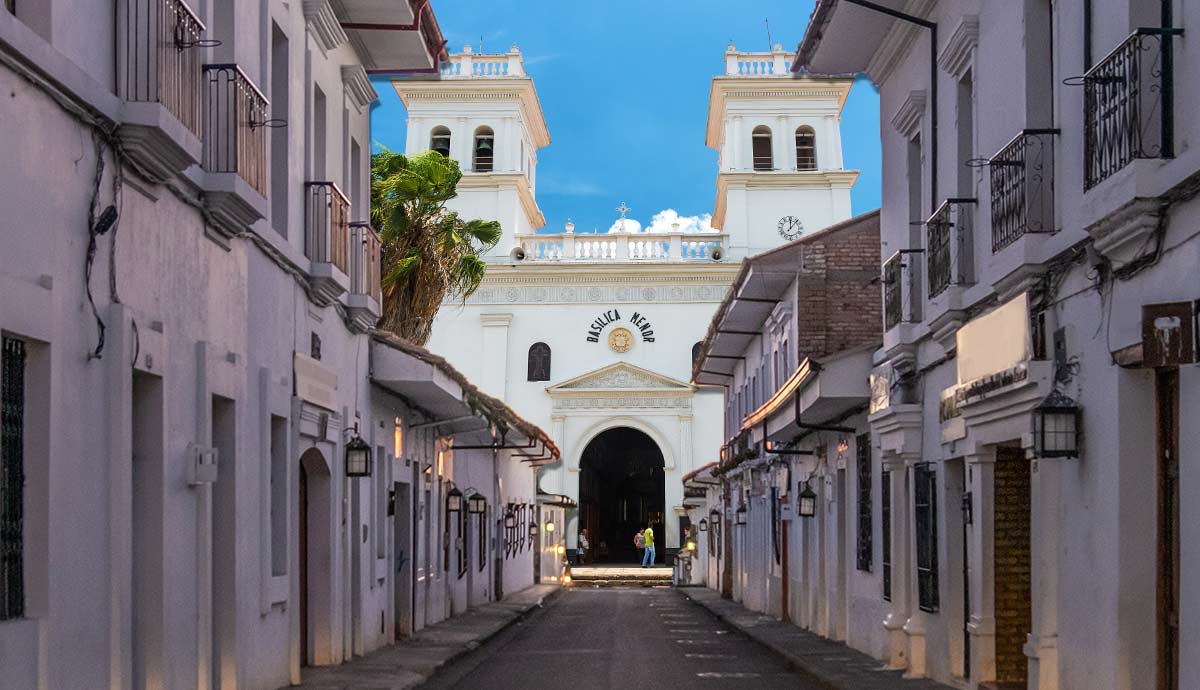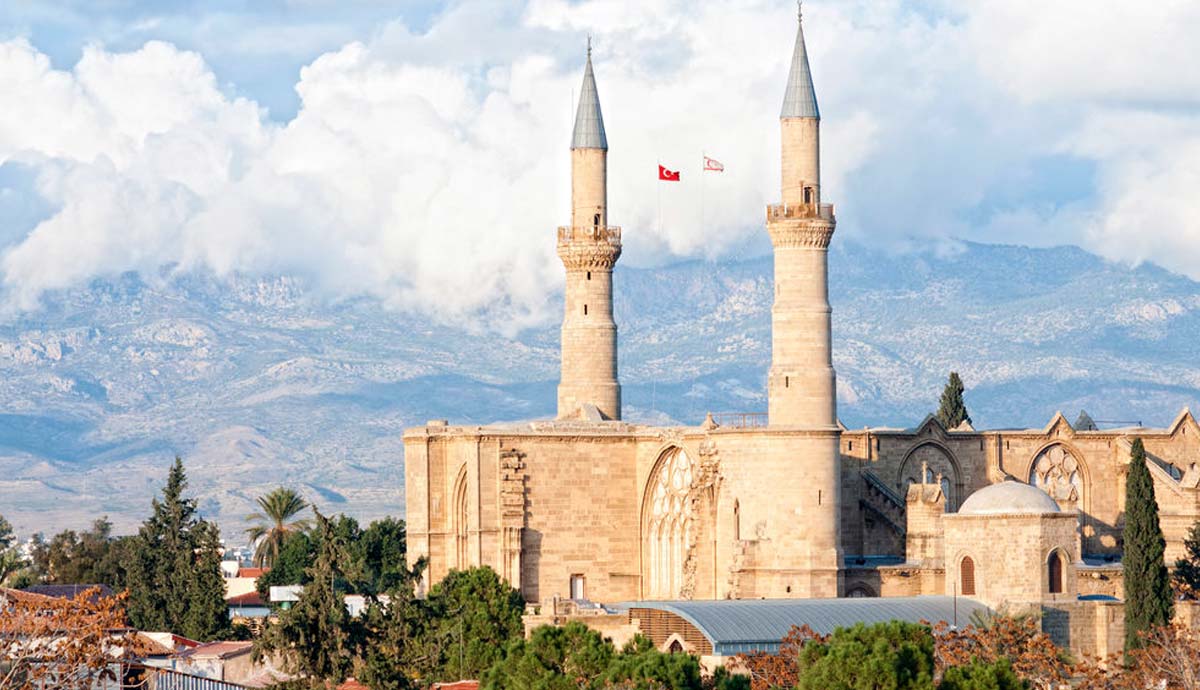
Cyprus, a captivating island located in the Eastern Mediterranean, is well known for its complex history, rich cultural heritage and geographical features. But it is also known for its ongoing division, known as the Cyprus problem, or the Cyprus conflict. Currently, Nicosia, also called as Lefkosia in Greek and Lefkoşa in Turkish, holds the unique distinction of being not only the capital of Cyprus but also the most recently divided capital of the world. Although this division dates to 1974, the underlying causes go back much further.
Where Is Cyprus?

Cyprus is an island in the Eastern Mediterranean with a surface area of 9.251 km². It is the homeland of Turkish-speaking and Greek-speaking Cypriots as well as many other ethnic and cultural groups such as Armenians, Maronites and Latins. As a multicultural country, Cyprus has two official languages: Greek and Turkish. The Republic of Cyprus, governing the southern part of the island, designates Greek as its official language.
On the other hand, the Turkish Cypriot community, residing predominantly in the northern segment, has established the Turkish Republic of Northern Cyprus (TRNC), where Turkish is the official language. The Republic of Cyprus is internationally acknowledged as the legitimate authority over the entire island, including the north, while the TRNC solely receives recognition from Turkey. Consequently, this means on an international level, the Turkish language lacks official recognition across the entirety of Cyprus. Nonetheless, it maintains its official status within the territories under TRNC administration.
The History of Civilizations in Cyprus

Having a rich history dating back thousands of years, Cyprus has been influenced by civilizations such as the Greeks, Romans, Byzantines, and Ottomans. This history is reflected in its architecture, archaeological sites, and cultural traditions, but it also shaped the political conjuncture of the island.

If we travel back in time to the 2nd millennium BCE, Cyprus was inhabited by the Mycenaean Greeks. Enjoying a strategic position in the eastern Mediterranean, the island was subsequently occupied by several great powers, including the Assyrian, Egyptian and Persian empires, which were conquered by Alexander the Great in 333 BCE.
Following rule by Ptolemaic Egypt, the Classical and Eastern Roman Empires, briefly by the Arab Caliphates, the French Lusignan dynasty and the Venetians, it was under Ottoman rule for more than three centuries between 1571 and 1878 (de jure until 1914). Over this period, many developments – political and administrative, demographic and economic – took place, such as the enhanced involvement of the Greek Orthodox Church in local governance and community affairs; the population becoming a mix of Christians and Muslims; and the system of fiscal agriculture being introduced.

In 1878, Cyprus was leased to Britain by the Ottoman Empire under the terms of the Cyprus Convention. While it cannot be asserted that the British Empire was the sole influence shaping the trajectory of the island, British colonial policies indeed exacerbated tensions between the Greek Cypriot and Turkish Cypriot communities.
This was primarily achieved through the implementation of divisive strategies and biased policies. For instance, the British maintained and even expanded separate educational systems for Greek and Turkish Cypriots. Greek schools were mainly driven by Greek nationalism and the Orthodox Church, while Turkish schools were dominated by Turkish nationalism and Muslim religious authorities. Furthermore, the British administration encouraged the separate ethnic identities of Greek and Turkish Cypriots, rather than a unified Cypriot identity.
Political Turmoil

Following a series of events – the outbreak of intercommunal violence, resulting in the first major clashes between Greek Cypriots and Turkish Cypriots – in 1960, the agreement of Greek Cypriot and Turkish Cypriot communities on a constitution marked the end of British colonial rule and the establishment of the Republic of Cyprus. Still technically in effect today, the Treaty of Guarantee grants Britain, Greece and Turkey the right to intervene, and Britain retains sovereignty over two military bases. Yet the practical application and relevance of the Treaty of Guarantee have been the subject of controversy, particularly following the events of 1974, which escalated the situation dramatically. In that same year, a coup d’état by Greek Cypriot nationalists seeking a union with Greece (Enosis) was followed by war between Turkey and Greece.
Many Cypriots were forced to leave their homes and were displaced to different towns in Cyprus. This eventually led to a ceasefire and the invocation of its treaty rights, but left the island – and the capital, Nicosia – divided in two. It also left the Turkish Cypriot community in a state of isolation and non-recognition on the international stage, which remains to this day.
Reunification of Cyprus: An Ongoing Debate

Over the decades, Cypriot communities and major ethnic groups inhabiting the island have encountered a range of struggles related to anti-colonialism, fear of partition and alienation, internal violence, socio-economic instability, and many other issues. Any of these events leading to the ultimate division of Cyprus have not happened overnight. Nevertheless, they contributed to the aggravation of the political environment within the island, and harmed the reunification efforts facilitated by the international community, through the United Nations. The last attempted negotiations for reunifying the island took place in 2017, in Crans-Montana, Switzerland. Both parties seemed ready to work together towards achieving this ultimate goal of unification and agreed on important number of topics. But the very next day after an agreement was reached on a plan for reunification, all was abandoned.

Notwithstanding the current political atmosphere and status quo in Cyprus, peace activists across the island keep stepping up reconciliation efforts through a variety of organizations, associations and initiatives. While no definitive answer has been found to the question of Nicosia’s future, it still leaves room for hope.
References:
1. BBC Monitoring (2011, December 13), Timeline: Cyprus, BBC News – Timeline: Cyprus
2. James Ker-Lindsay, 2019, The Cyprus Problem in an Era of Uncertainty: Establishing a Culture of Engagement, (PDF) The Cyprus Problem in an Era of Uncertainty: Establishing a Culture of Engagement | James Ker-Lindsay – Academia.edu
3. Jason Klocek, 2023, The shifting sands of relational peace in Cyprus, (PDF) The shifting sands of relational peace in Cyprus | Jason Klocek – Academia.edu
